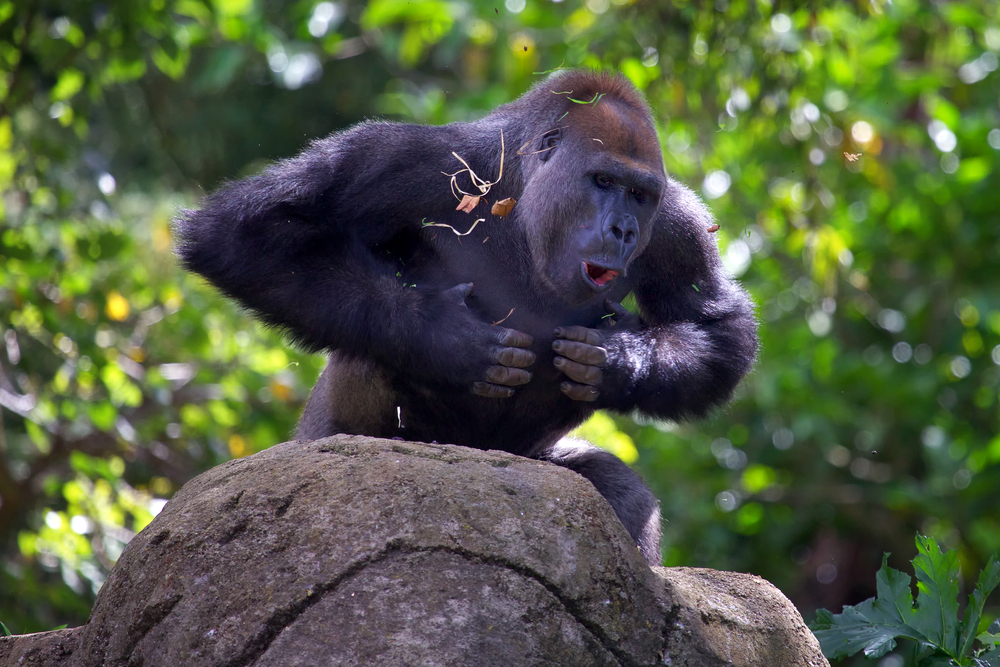
Gorillas hum and sing little tunes while eating certain foods, using a form of vocalisation that is completely distinct from the noises they make when engaged in any other activity, a new study has revealed.
Zookeepers have long observed this humming habit in captive gorillas, and they say that the song becomes louder the more the animal is enjoying its meal, but the evidence has remained anecdotal until now. Eva Luef, a primatologist at the Max Planck Institute for Ornithology in Germany and one of the principle authors of the new report, went to the Congo to study two groups of western lowland gorillas, and she observed suppertime singing among wild populations too.
However, according to Luef’s findings, in contrast to the behaviour of captive gorillas, who all seem keen to croon while eating (in much the same way that mass mealtime chatter is seen to happen in chimpanzee and bonobo societies), in the wild gorilla communities it’s only the dominant silverback males who strike up a tune while chewing. Luef believes this is the alpha male’s way of communicating that he’s not going anywhere until he has finished his meal.
‘We think that singing has a social function and that the adult males might produce these calls more often because the silverback males are the ones that make collective decisions for the group,” she explained to the ABC. ‘So, when the silverbacks sit to feed the rest of the group follows, and when he gets up and starts travelling in the forest, the rest of the group follows.’
There are actually two kinds of vocalisation that happen when gorillas dine. The first is a generic hum, which appears to denote contentment, but the second is typically a more complex melody, which seems to change depending on the food being consumed. ‘We have to look into this in more detail to see if they actually compose these little songs, new with every feeding instance or whether they have a certain repertoire of songs that they just repeat,’ said Luef.
Scientists believe the findings will help reveal how human’s use of language evolved. ‘If they have repertoire of notes and sounds that they can compose variably into songs, this will be very much similar to human language because we have certain sounds that we can make and we compose into words and different languages,’ Luef explained.

